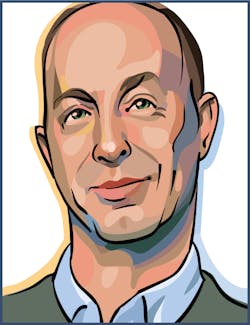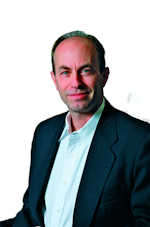Webcast Dec. 3 2013: A new terahertz-spectroscopy tool for future photonics and electronic materials

Much is made of the development of novel forms of photonics, such as organic detectors, emitters, and photovoltaics, as well as novel electronics, including graphene electronics, spin-based computing, and others. These up-and-coming technologies are important for good reason; unless we plan to be happy forever with 2 to 4 GHz processor speeds, existing data-storage densities, and conventional photonics, such technologies are our way forward. These technologies, by the way, can be characterized in detail by another form of photonics -- terahertz spectroscopy.
Terahertz radiation is a noncontact, nondestructive way of determining detailed material characteristics such as carrier scattering time in semiconductors (important to high-speed electronics), vibrational resonances in molecular solids (organic electronics and photonics), and antiferromagnetic resonances (spin-based computing).
Lake Shore Cryotronics (Westerville, OH), an expert in this area, has developed a continuous-wave terahertz-spectroscopy system especially for the discovery and advancement of future technological materials; the system will be available in early 2014. The company is describing its system, as well as some new research findings, in a Laser Focus World webcast on December 3, 2013; please join us for this (free) webcast, which will be presented by David Daughton, applications scientist at Lake Shore Cryotronics.
To register, visit: http://www.laserfocusworld.com/webcasts/2013/12/emerging-tools-for-materials-research.html

John Wallace | Senior Technical Editor (1998-2022)
John Wallace was with Laser Focus World for nearly 25 years, retiring in late June 2022. He obtained a bachelor's degree in mechanical engineering and physics at Rutgers University and a master's in optical engineering at the University of Rochester. Before becoming an editor, John worked as an engineer at RCA, Exxon, Eastman Kodak, and GCA Corporation.